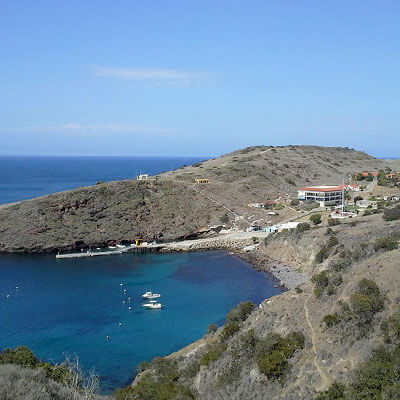In our increasingly interconnected and complex world, the question of maintaining global security becomes more and more complicated to address. The M.A. in Global Security Studies (M.A. GSEC) gives students the skills to develop and implement policies that creatively and effectively address challenges such as environmental vulnerability, public health, food and resource scarcity, regional conflict, cyber attacks and other natural and human-caused instability issues.
Graduates of the program will gain an understanding of our changing world’s dynamics and prepare to propose policy-based solutions to these threats by completing relevant assignments, including case studies in political science, international relations, economics and spatial sciences.
Over the course of the global security studies master’s degree, students examine not only issues of military defense and other protections for nation-states, but also environmental security challenges, such as the effects of climate change and human-caused and natural disasters, as well as questions of human rights and personal sovereignty.
“Students looking to pursue or advance a career in government, with non-governmental organizations dealing with policy issues like human rights, or at private firms, centered on national security will find the program especially useful.”
– Steven L. Lamy, Ph.D.,
USC Dornsife Professor Emeritus in International Relations and Spatial Science
Request Brochure
Fill out the information below to learn more about the University of Southern California’s GIS Graduate Programs and download a free brochure. If you have any additional questions, please call 877-650-9054 to speak to an enrollment advisor.
Program Curriculum
The M.A. in Global Security Studies uniquely combines three disciplines: global security, spatial sciences and international relations.
The program gives students hands-on experience at solving problem-based policy issues through a required summer practicum. As part of this practicum, students will participate in an eight-week summer internship with a key organization in the global security field.
The coursework features a variety of assignments, many of which can be assembled into a digital portfolio that will help students demonstrate their capabilities and skills to the job market. Students will also have the chance to lead discussions and work collaboratively on projects with classmates.
In addition, students can build their professional network through guest speaker events, industry meet-ups and other career development opportunities, such as the annual Los Angeles Geospatial Summit.
Career Outlook
The M.A. in Global Security Studies provides students with a master’s-level education in global security and international relations, while also providing an introductory background in spatial science. Intensive coursework in these subjects combined with the real-world experience provided by the practicum and internship gives students the tools they need to better navigate:
- International relations and policy
- Border conflicts
- Peace and conflict resolution
- Human migration
- Global trade
- Human trafficking
- Drug trafficking
- Terrorism
- Global business and trades
Upon completion of this program, graduates will be prepared for careers in public service, the private sector or the nongovernmental organization arena. Alumni can find jobs in a variety of industries, including the military, law enforcement, security and defense, journalism and politics.
Global Security Studies
What is global security studies?
Global security studies is an established field that aims to address historical, current and developing trends in domestic and international security from a broad lens. Global security studies programs vary, but most focus on international affairs and global security.
What is a master’s in global security?
The global security degree at USC is a master’s in global security program. This interdisciplinary degree equips students with the knowledge and skills needed to analyze, understand and address the complex security issues that affect the world on a global scale. Individuals who pursue a master’s degree in global security studies are prepared for military and government roles as well as careers in the private and nonprofit sectors. Upon completion of the degree, students can pursue a variety of positions, including those in security and defense, law enforcement and the military.


